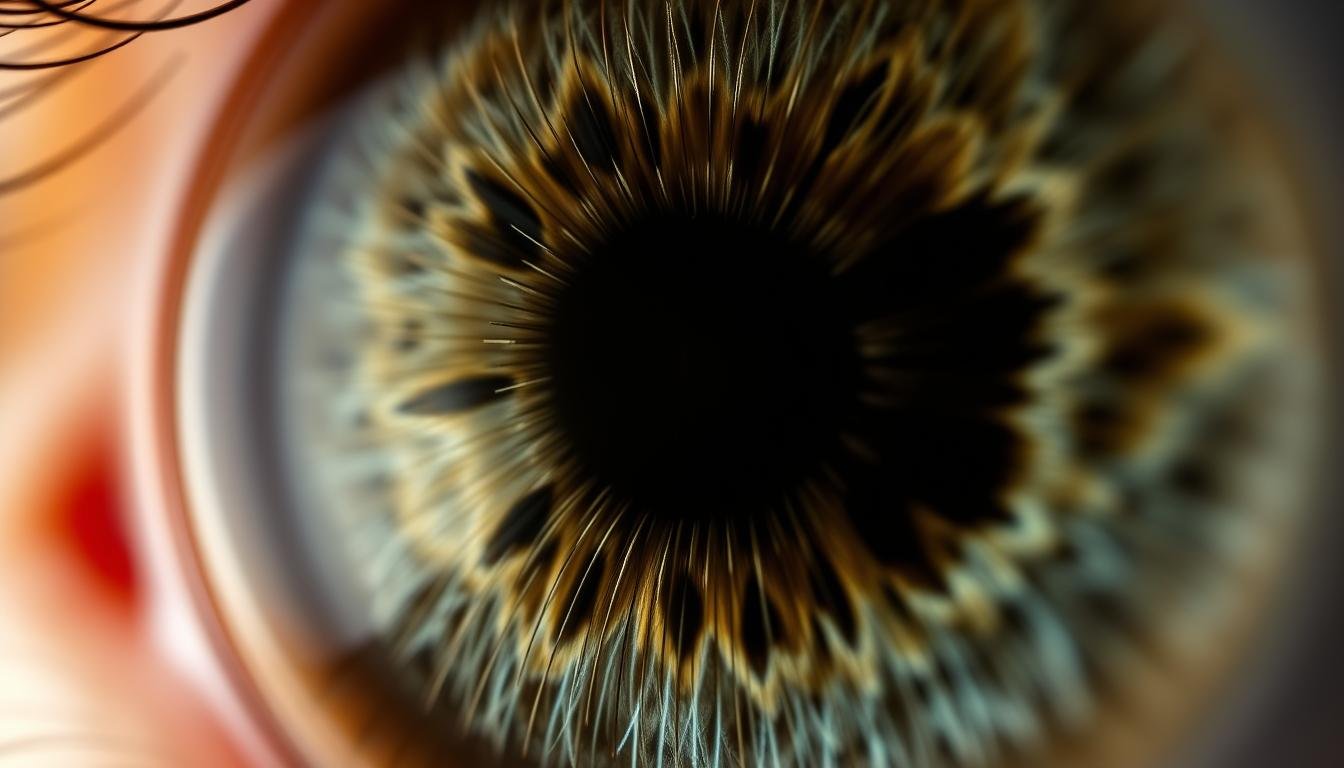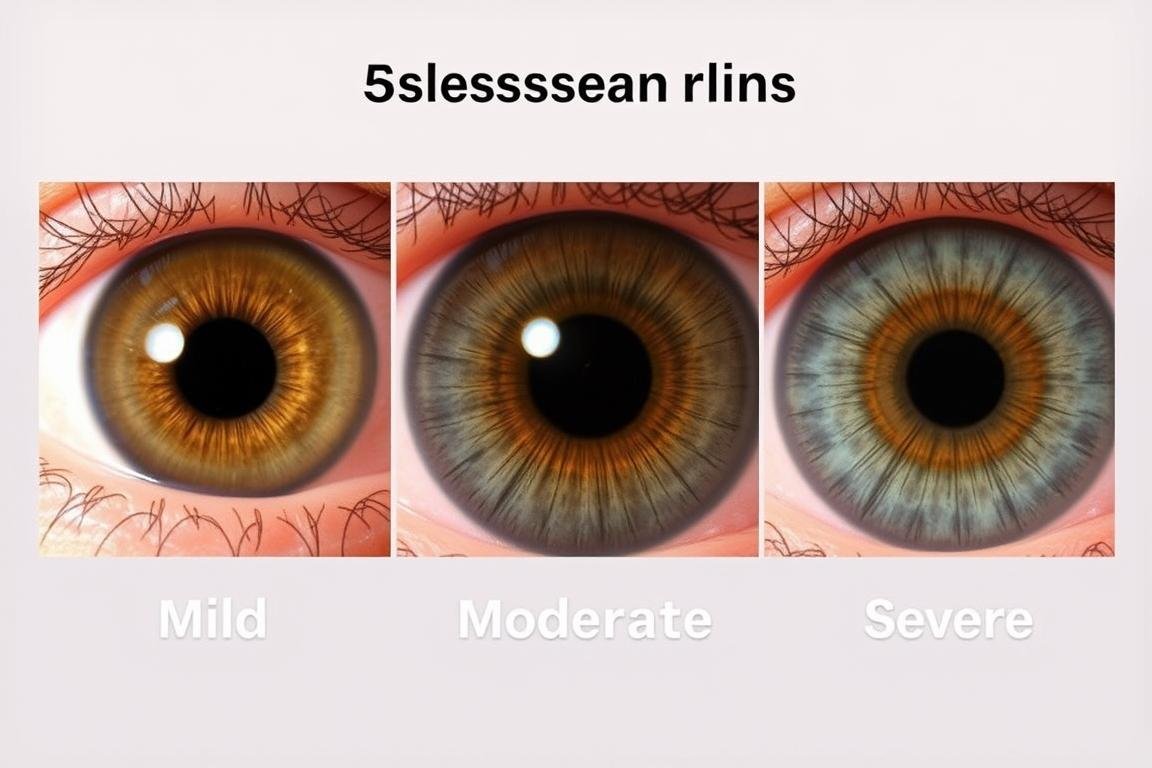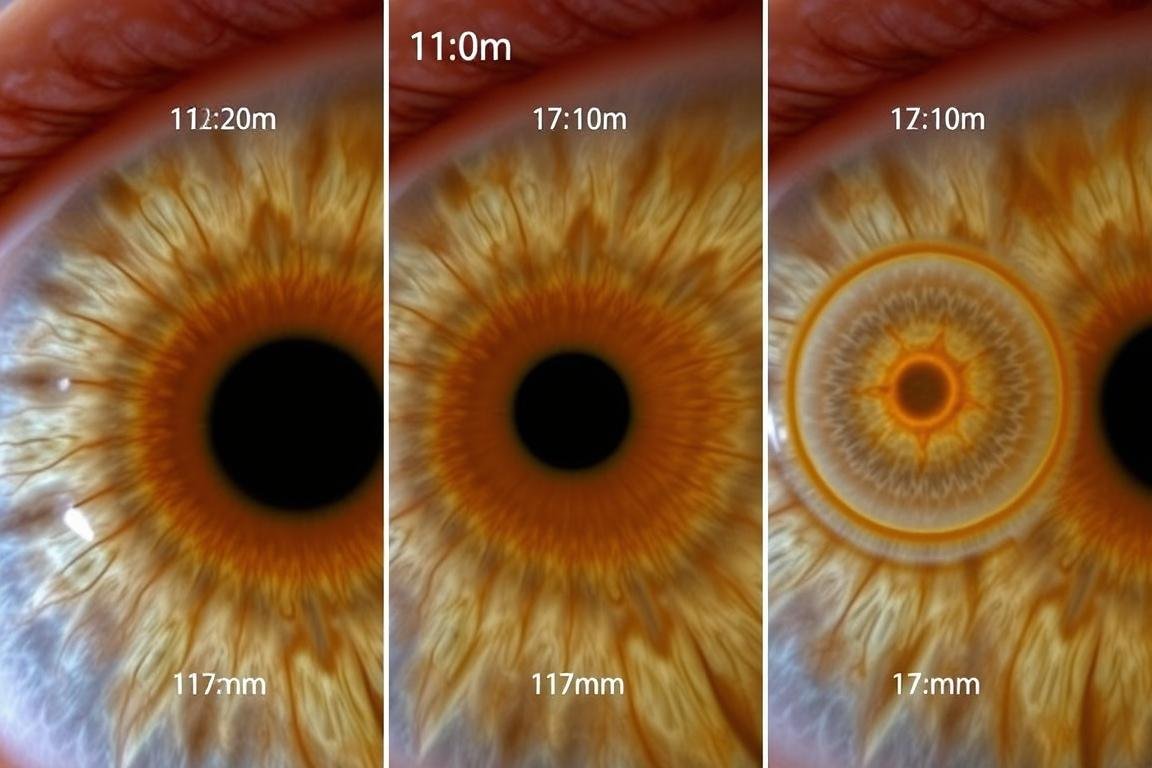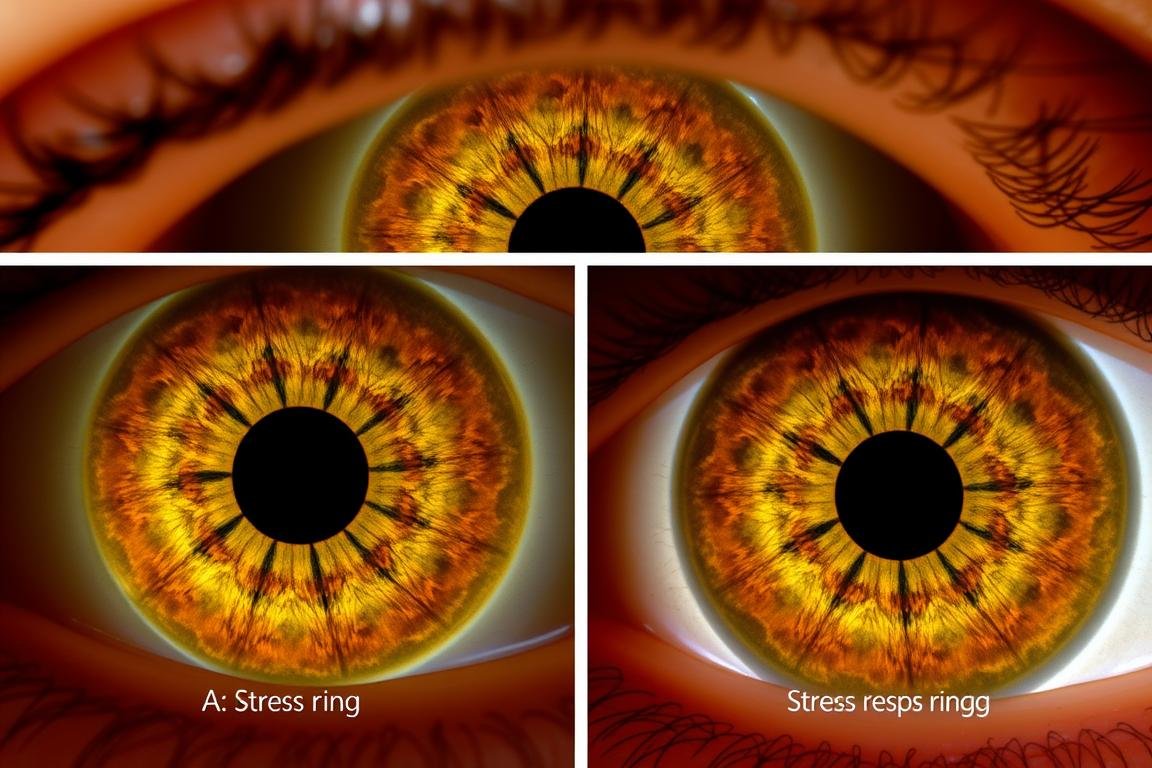The iris, the colored part of your eye, contains intricate patterns that may reveal more about your health than you realize. Among these patterns are stress rings in eyes, circular formations that can indicate your body’s response to chronic tension. These rings, also known as nerve rings or contraction furrows, have fascinated both traditional medicine practitioners and alternative health specialists for decades. Understanding what these markings mean could provide valuable insights into your overall well-being and stress management needs.What Are Stress Rings in Eyes and How Do They Form?

When examining the iris closely, stress rings in eyes appear as circular lines or indentations that form around the pupil. These rings develop as a result of chronic tension affecting the body’s nervous system. The iris contains thousands of nerve endings connected to various parts of the body through the nervous system. When the body experiences prolonged stress, these nerve fibers can contract, creating visible circular patterns in the iris tissue.
These rings are sometimes called neurovascular cramp rings because they represent a state of neurovascular dysfunction where chronic nervous tension affects blood circulation. The more pronounced these rings appear, the higher the level of chronic stress the individual may be experiencing.

The Scientific Perspective on Stress Rings in Eyes
From a scientific standpoint, the connection between iris patterns and health conditions remains controversial in conventional medicine. However, several studies have examined the relationship between iris markings and stress responses in the body. Research suggests that the autonomic nervous system, which regulates involuntary bodily functions, may influence iris structure during periods of chronic stress.
The iris contains both sympathetic and parasympathetic nerve fibers. When the sympathetic nervous system (responsible for “fight or flight” responses) is chronically activated due to ongoing stress, it may affect the muscle fibers in the iris, potentially contributing to the formation of these rings.
Physiological Basis of Stress Rings in Eyes
The physiological mechanism behind these rings involves the relationship between the nervous system and iris tissue. When the body experiences chronic stress, several changes occur:
- Increased muscle tension throughout the body
- Elevated stress hormone levels (cortisol, adrenaline)
- Changes in blood circulation patterns
- Autonomic nervous system imbalance
These systemic changes may manifest in the iris as visible rings or furrows as the body attempts to adapt to ongoing stressors.
Iridology’s Interpretation of Stress Rings in Eyes
Iridology, a form of alternative medicine, places significant emphasis on iris markings as indicators of health. According to iridologists, stress rings in eyes provide valuable information about an individual’s nervous system function and stress levels.

left eye iridology chart
How Iridologists Interpret These Markings
In iridology practice, the number, depth, and location of stress rings can indicate:
- The intensity of chronic stress the person is experiencing
- How long the stress has been affecting the body
- Which body systems may be most impacted by the stress
- Potential inherited tendencies toward stress responses
Multiple pronounced rings may suggest a higher degree of nervous tension, while lighter, fewer rings might indicate milder stress levels.
Diagnosing Stress Rings in Eyes: What They Reveal
The presence and characteristics of stress rings in eyes can provide insights into various aspects of health and well-being. These markings are particularly valuable for understanding how stress affects different individuals.
Stress Intensity

The depth and darkness of the rings can indicate the severity of stress. Deeper, more pronounced rings often suggest more intense chronic stress affecting the nervous system.
Duration of Stress

Multiple rings at varying depths may indicate stress that has accumulated over different periods. Newer stress might appear as lighter rings, while long-term chronic stress often creates deeper, more established patterns.
Stress Response Type

The pattern and distribution of rings can suggest how an individual typically responds to stress—whether they internalize it, experience physical symptoms, or manifest emotional reactions.
Health Implications of Stress Rings in Eyes
The presence of stress rings in eyes may correlate with various health concerns related to chronic stress. While these rings themselves are not necessarily harmful, they can serve as visual indicators of underlying stress that may affect multiple body systems.
Potential Health Concerns
- Nervous system imbalances
- Digestive system disturbances
- Sleep quality issues
- Immune system suppression
- Hormonal imbalances
- Cardiovascular strain
Warning Signs to Monitor
- Persistent fatigue despite adequate rest
- Recurring digestive problems
- Frequent headaches or muscle tension
- Mood fluctuations and irritability
- Compromised immune function
- Difficulty concentrating or brain fog
It’s important to note that while stress rings in eyes may correlate with these health concerns, they should be considered alongside other symptoms and diagnostic approaches rather than as standalone indicators.
Managing Stress to Reduce Stress Rings in Eyes
While stress rings in eyes may not disappear completely, especially if they’ve been present for many years, addressing the underlying stress can potentially reduce their prominence and prevent new rings from forming. More importantly, effective stress management improves overall health and well-being.
Lifestyle Approaches
- Regular physical activity: Exercise helps reduce stress hormones and promotes relaxation
- Adequate sleep: Quality sleep allows the nervous system to recover and reset
- Balanced nutrition: Proper nutrients support nervous system function
- Mindfulness practices: Meditation and deep breathing activate the parasympathetic nervous system
- Nature exposure: Spending time outdoors has been shown to reduce stress levels
Need Personalized Guidance?
Understanding your unique stress patterns can help create a targeted approach to improving your health. Consider a professional assessment to gain deeper insights.
Book a Consultation
Nutritional Support for Stress Reduction
Certain nutrients play key roles in supporting the nervous system and helping the body manage stress more effectively. A balanced diet rich in these nutrients may help reduce the impact of stress on the body and potentially influence the formation of stress rings in eyes.
| Nutrient | Benefits | Food Sources |
| B Vitamins | Support nervous system function and energy production | Whole grains, leafy greens, eggs, legumes |
| Magnesium | Muscle relaxation, nervous system regulation | Dark chocolate, nuts, seeds, leafy greens |
| Omega-3 Fatty Acids | Anti-inflammatory, support brain health | Fatty fish, walnuts, flaxseeds, chia seeds |
| Vitamin C | Adrenal support, antioxidant protection | Citrus fruits, berries, bell peppers, broccoli |
| Adaptogenic Herbs | Help body adapt to stress, balance stress hormones | Ashwagandha, rhodiola, holy basil, ginseng |

Professional Assessment of Stress Rings in Eyes
While self-observation can provide some insights, a professional assessment offers a more comprehensive understanding of stress rings in eyes and their potential health implications. Practitioners trained in iridology can identify subtle patterns that might be missed by untrained observers.
What happens during an iridology assessment?
During an assessment, the practitioner examines your iris using specialized equipment that magnifies the iris patterns. They document the markings, including stress rings, and analyze them in relation to your overall health history and current concerns.
How long does an assessment take?
A typical initial assessment takes 30-60 minutes, including time for discussing your health history and explaining the findings.
What kind of recommendations might I receive?
Based on the assessment, you may receive personalized recommendations for stress management techniques, nutritional support, lifestyle modifications, and potentially referrals to other health practitioners if needed.

Understanding Your Stress Rings in Eyes: Next Steps
Stress rings in eyes offer a fascinating window into how your body responds to life’s pressures. While these iris markings shouldn’t be the sole basis for health decisions, they can serve as valuable indicators that prompt further investigation into stress management and overall well-being.
By combining awareness of these physical signs with proactive stress management techniques, you can work toward better health outcomes and potentially reduce the formation of new stress patterns in your iris.
Take Control of Your Stress Today
Discover what your iris reveals about your health with a comprehensive assessment. Our experienced practitioners can help you understand your unique stress patterns and develop personalized strategies for better health.
Schedule Your Iris Assessment












